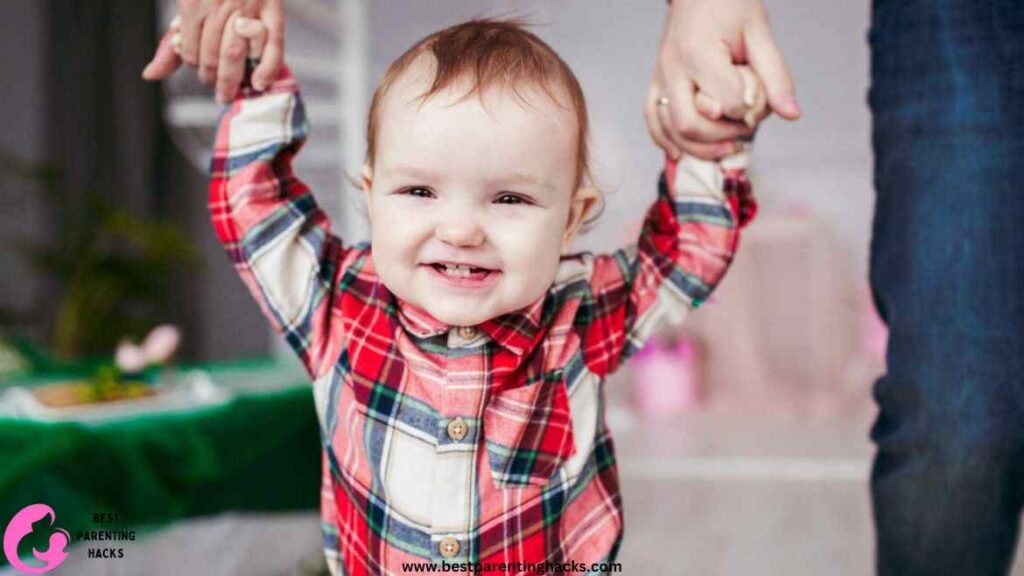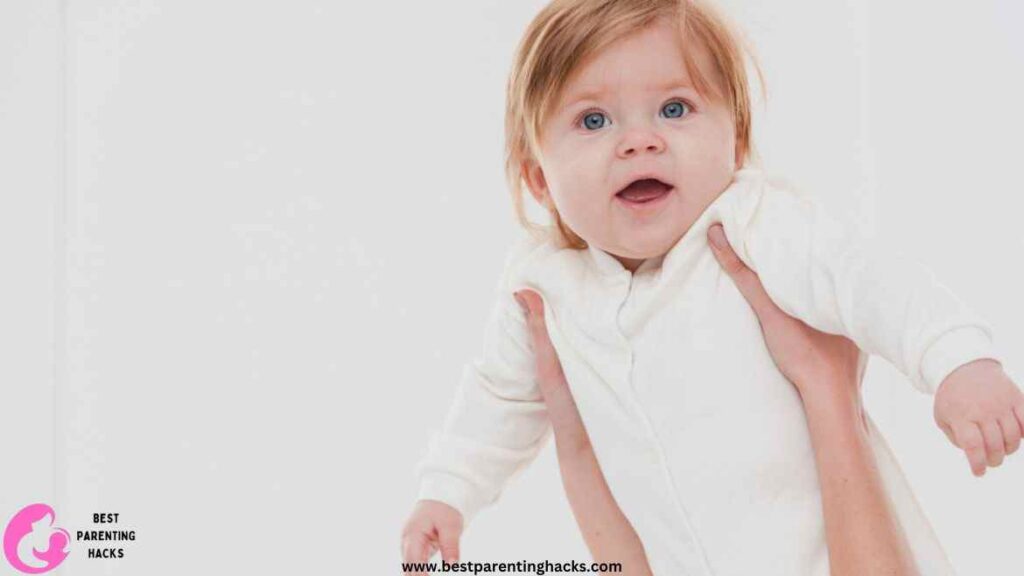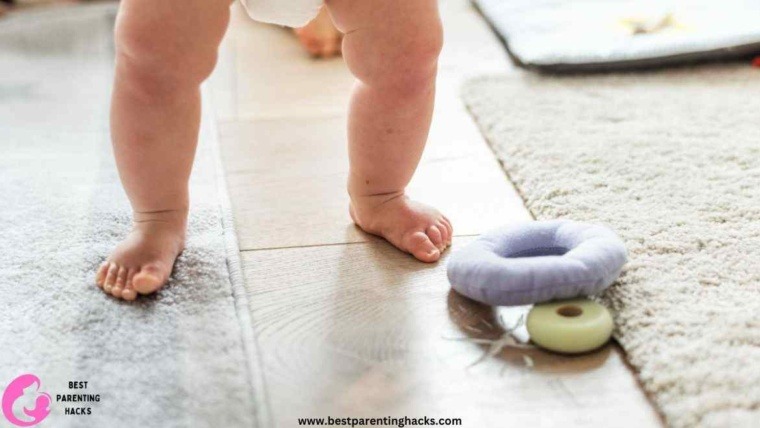Table of Contents
One of the most charming and fascinating parts of early childhood development that I have seen as a parent is how infants use their movements to communicate their feelings. The usual propensity of newborns to open and close their hands in response to excitement is particularly remarkable. This simple yet meaningful action offers a glimpse, into the world of children’s communication and growth. It shows that the baby is engaging with their surroundings and clearly showing excitement in response, to stimuli. This activity is an important component of their development and emotional expression rather than merely a haphazard motion.
To directly respond to the question in the title, it is normal and developmental for newborns to open and close their hands in reaction to excitement. It’s how they convey happiness, curiosity, or excitement. This movement is an indication of early communication and how they are responding to their environment both physically and emotionally. It’s a typical and healthy stage of growth, demonstrating their increasing capacity for environmental interaction.

Why Babies Open and Close Their Hands When Excited
Babies’ fast hand opening and closing is a fascinating demonstration of their growing motor abilities and emotional intelligence. This habit is a complex phenomenon with several influencing factors:
1. Physical Instinct: An innate reaction requiring motor abilities.
2. Emotional Reaction: The outward display of happiness or pleasure.
3. Neurological Development: The expanding capacity of the brain to communicate with muscles.
4. Sensory Exploration: Investigating and responding to sensory inputs using hand motions.
5. Communication: A primitive means of conveying wants and feelings before the development of linguistic abilities.
You Might Also Like to Read: Baby Opens Mouth Wide When Excited. What’s the Reason?

Understanding Baby’s Developmental Milestones
A baby’s developmental path is an intricate and interesting process. It includes a series of stages and milestones that signify moments in their emotional and physical growth. These developmental markers are indicators of a baby’s health and well being. For example, parents look forward to and celebrate milestones such as the first smile, first word, and first walk. The acquisition of fine motor abilities, which includes the ability to open and close hands, is also a noteworthy achievement. It denotes not only physical maturation but also the manifestation of emotions and brain development.
1. Physical Growth: The improvement of coordination and muscle control.
2. Neurological Development: How the brain regulates and synchronizes these motions.
3. Emotional Expression: The relationship between these motions and the baby’s feelings.
4. communication Skills: Using gestures, one may initiate nonverbal conversation.
You Might Also Like to Read: Can I Mix Baby Oatmeal with Water?

Observing and Interpreting Baby’s Hand Movements
I’ve discovered as a parent how crucial it is to watch and analyze these hand gestures. They can reveal a great deal about the emotional condition and developmental stage of a newborn.
1. Excitement and Joy: Hands opening and closing quickly.
2. Curiosity: The need to reach and grasp.
3. Frustration or Discomfort: clenching your fists together.
4. Exploration: Feeling and touching things.
5. Communication: Expressing demands or emotions with hand gestures.
Parental Responses and Encouragement
For a baby to develop properly, it is important to respond to and encourage these hand motions.
1. Positive Reinforcement: When the infant exhibits these behaviors, smile and converse with them.
2. Interactive Play: Taking part in exercises that improve motor skills and hand-eye coordination.
3. Providing Toys: Present toys that encourage grabbing and gripping.
4. Observation and Understanding: Determining the meaning behind various gestures.

Expert Opinions and Research
Researchers and experts in pediatric development have clarified the importance of these motions.
1. Developmental Milestones: These motions are categorized as early developmental milestones by experts.
2. Physical Health Indicator: Stable muscular and nerve growth is indicated by regular movement.
3. Emotional Health Indicator: Shows how sensitive and emotionally healthy the infant is.
4. Predictor of Future Development: Complex future talents can be predicted by early hand motions.
5. Guidance for Parents: Professionals offer pointers on what to anticipate and when to ask for help.
Personal Experiences and Community Discussions
I’ve gained a plethora of knowledge and experiences from conversations in parenting forums as well as from my own experience. These platforms offer a space for parents to engage in conversations, about their thoughts, concerns, and joys related to their child’s development. Parents share and learn from one other’s experiences on sites like BabyCenter and Mumsnet, offering a wealth of practical advice and support.

Conclusion
It has given me pleasure and wisdom to reflect on the experience of watching my child grow, particularly the opening and closing of his hands in reaction to enthusiasm. This small action may provide insights into a baby’s development and emotional well-being. It serves as a reminder of the beautiful process of early growth. To ensure the health and happiness of our ones parents need to understand and nurture these tendencies.
FAQs
1. Is it typical for infants to open and shut their hands quickly?
Indeed, this is a typical stage in their growth as it shows emotion and eagerness.
2. What does my baby’s opening and closing of their hands signify?
This gesture typically expresses enthusiasm, happiness, or wonder about what they are observing.
3. Do these hand gestures cause me to worry?
These movements are usually typical, but it’s always a good idea to see a pediatrician if you detect anything out of the ordinary or worrisome.
4. How can I help my child develop their motor skills?
Providing suitable toys, promoting exploration, and participating in interactive play may all greatly aid in the development of motor skills.
5. Do these gestures suggest a change in emotions?
Yes, they help newborns communicate their feelings before they can talk and are strongly related to emotional development.
6. Do these hand gestures indicate a more severe issue?
Consistent patterns of strange movements, even though they are typically normal, should be reviewed with a healthcare provider.
7. How do these motions change as my child gets bigger?
These motions will become more deliberate and synchronized as your baby gets older, developing more sophisticated motor abilities.




